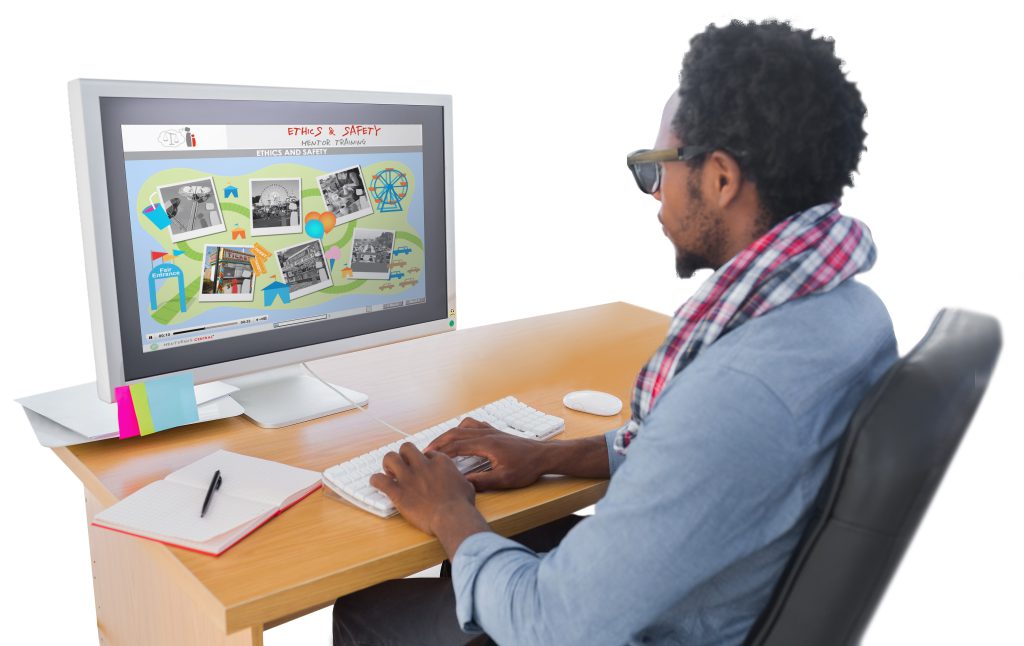Posted by jmeyer on April 19, 2022
Virtual mentoring (also known as e-mentoring, online mentoring, or digital mentoring) happens when a mentor and a mentee primarily communicate through a computer or mobile device (e.g., smartphone, tablet, video game console, text, etc.) Communicating with technology is becoming more common in many aspects of our lives today including in mentoring relationships.

While the pandemic may have pushed many mentoring programs to virtual mentoring as a necessity, virtual communication has grown to be an effective tool for maintaining relationships. Consider these findings:
In the recently developed resource from MENTOR, Becoming a Better Mentor: Strategies to Be There for Young People, Dr. Michelle Kaufman described research that can support effective online communication in a mentoring relationship. Kaufman wrote that there are three key factors that can help mentors build a successful online relationship.
The mentee’s developmental stage is an indicator of the format and outline for the virtual session. Younger youth may not be able to handle as much online interaction as teens. In contrast, teens may want to over engage in communicating virtually, as this is the most common method that they use for communicating with their peer group.
Connecting virtually requires a solid internet connection and a private space for both parties. Those details may move your program towards a particular form of virtual communication. For example, video streaming (e.g., Zoom) requires having an appropriate bandwidth that may be unavailable to some mentees, so using FaceTime or texting may be a preferred way to have quality communication.
While connecting on social media can deepen the relationship, both parties need to be mindful of what they post, especially the mentor. The fact that mentees see what their mentor is posting may mean that mentors need to change how they use their personal social media. Also, mentors need to check the background they are presenting during a video call. Showing a large-screen TV in the background could be distracting or something the mentee may consider affluent may conjure uncomfortable feelings, so a less personal background may be more suitable.
When training your volunteers for participating in an online mentoring relationship, be sure to touch on these items:
Today’s youth are digital natives, meaning that they have been online and using technology since they were born — they have never lived without the internet. In contrast, some mentors are still learning to navigate being online and will appreciate training on these topics to guide them in their eMentoring approach.
Being successful with online mentoring happens when mentors are confident about their participation in a virtual format. An effective way to build that confidence comes by using research-based best practices and evaluating how these practices can help you achieve the objectives of your program.
Mentoring Central has developed an asynchronous, web-based, interactive training called Building the Foundation for e-Mentoring to help train mentors to build safe, virtual relationships with their mentees. The course includes six lessons that will increase the knowledge of your mentors about virtual mentoring while also fostering their confidence about being a virtual mentor, so that they will fully engage in a virtual mentoring relationship.
Young people are very comfortable communicating by text, social media, apps, and gaming. They do these things every day with their peers. This is their space. Reaching them in the digital world can increase the positive impact of your program and mentors’ communication with mentees.